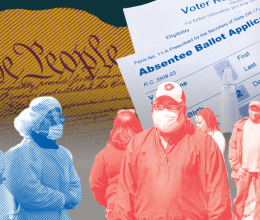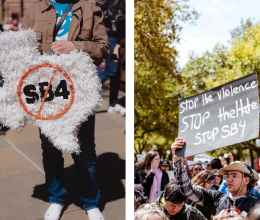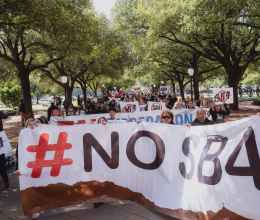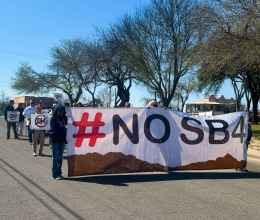
HOUSTON – A United States District Court today granted the ACLU of Texas’ request to release a person who is highly vulnerable to serious illness and death from novel coronavirus, held at the Montgomery Processing Center in Conroe, Texas. This is the first decision in Texas granting someone's release because of the danger posed by COVID-19. The lawsuit was filed on behalf of four plaintiffs represented by the ACLU of Texas, Weil, Gotshal & Manges LLP, and the national ACLU. Two were released on bond after the lawsuit was filed.
“Whether someone is released from detention can mean life or death during this pandemic,” said Kate Huddleston, attorney for the ACLU of Texas. “We are grateful that the court ordered ICE to release our client from immigration detention. As the court rightly explained, there is just no way for people like our client, who are especially vulnerable to COVID-19, to be safe while detained by ICE. In light of the pandemic, ICE must release many more people. We’re grateful that our client will be able to return home where she can protect her health and life, and we will press for others to get the same relief.”
We are pleased that this case resulted in three of our clients being released to safer conditions so they can avoid the irreparable harm they faced,” said Paul Genender, partner and head of litigation of Weil, Gotshal & Manges LLP’s Dallas office. “We are thankful that the Court acted as quickly and thoroughly as it did--a shining example of our judicial system administering justice in these unprecedented conditions.”
“We are pleased to see the court’s understanding that a COVID-19 infection could be a death sentence for people in immigration detention — particularly those with clear medical vulnerabilities,” said Eunice Cho, senior staff attorney at the ACLU's National Prison Project. “It is unconscionable that ICE would continue to hold people in civil detention when so many lives — inside detention centers and in the communities that surround them — are at risk. The agency must release many more people if it is to mitigate the looming public health and humanitarian disasters."







